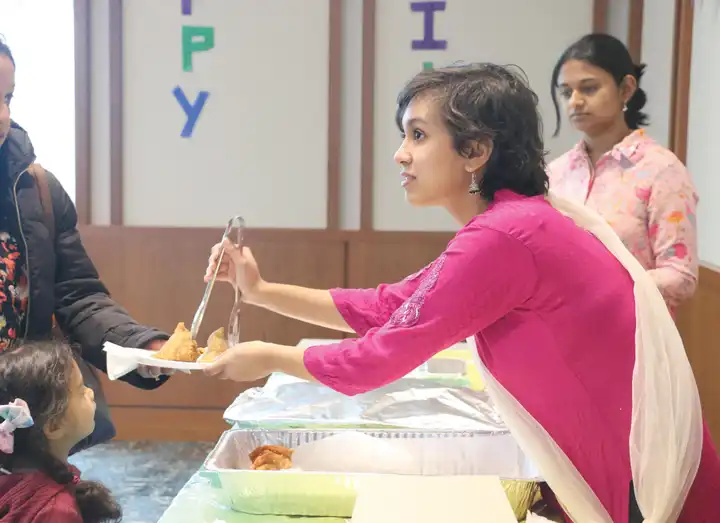
3 minute read
in my heritage STUDENTS FIND VALUE IN HERITAGE, CULTURE AS THEY MATURE
Senior Aqsa Karim, who has Bengali heritage, said her parents taught her about her culture when she was younger.
“I am Bengali. Growing up, I had strong input from my parents about my cultural heritage, and I just did not want to give that up,” she said.
Advertisement
As she got older, Karim said she began to research more about her heritage.
“Through connecting more with my culture (by myself) instead of through my parents like I did when I was little...I have discovered a new sense of identity for myself,” she said.
According to UNESCO, heritage is a cultural legacy that has been, and will continue to be, passed down for generations. Everyone has a heritage, a family tree formed in the distant past long before they were ever born.
Business teacher Jacob Goodman, who has also extensively researched his heritage, said he was first inspired to take on the initiative after the death of a family member.
“About seven years ago, my last grandparent, Betty, passed away and then shortly after that, I was just reflecting on my family and my grandparents and realizing that I had a lot of vague knowledge about our family history,...but no real solid names and not really much concrete information. So, I started researching my ancestry in the beginning on ancestry.com, like most people do,” he said.
Goodman said he was only able to gain so much information from the website before encountering roadblocks.
“Especially on my dad’s side, there were a lot of unknowns. There were many brick walls in my family tree,” he said. “So basically, I started actually going into public libraries and looking at old newspapers on microfilm. I started going to county clerk’s offices throughout Kentucky and getting old marriage certificates that weren’t digitized yet. As soon as that happened once or twice, I was pretty hooked and I’ve been going strong ever since.”
While heritage brings people closer to their roots, it can also have more complicated effects, especially when one’s heritage does not match with the predominant heritage found in an area.
Karim, who has experienced this firsthand, said her heritage has given her different sides to her identity.
“I’ve experienced two different parts of my personality,” she said. “At school, I’d be a different person than at home, where I’d be more like a brown person type, per se.”
However, Karim said her heritage has become an important part of her identity and is something she takes pride in.
“In my old school, there weren’t many brown kids...So, I thought (by assimilating), I would probably have a better time fitting in. But as I grew up, I realized that in
Scan this QR code to read the full story doing so, I’d be deleting a part of myself that I found very dear to me,” she said. “I don’t want to forget who I was as a kid or where my parents came from. Because even though I grew up and was born in America, I still am Bengali. That’s a part of me that will never go away, no matter how much I try to become someone different. So, in realizing that, I’ve found a new sense of peace within myself.”
Goodman encouraged more people to learn more about their heritage and said he believed people’s curiosity could be sated through learning about their heritage.
“I think that people are hungry to find meaning in their life because we live in such

A Colorful Celebration
Senior Aqsa Karim serves food during a celebration for Holi, also known as the Festival of Colors. Karim, a leader of South Asian Culture Club, said she is proud of her cultural heritage.

a diverse country with a very interesting history full of ups and downs. And not everybody really even knows where they fit into this whole equation. And I think (researching your heritage) can give you some insight into that,” he said.
Karim, who said she already knows how she fits into the equation, said she hopes to always maintain her ties to her heritage.
“It’s just something that I really hope doesn’t die out,” she said. “In thinking of my future life, I don’t want to forget my culture. I don’t want to get assimilated into something else. I want to keep being myself with all parts of myself rather than only living as (one part of myself).”









